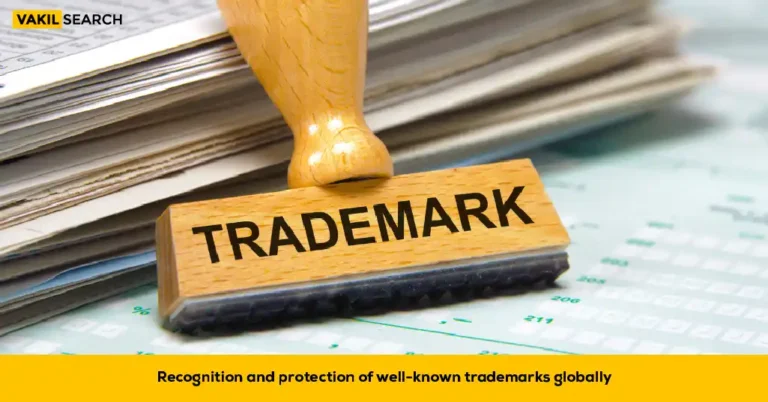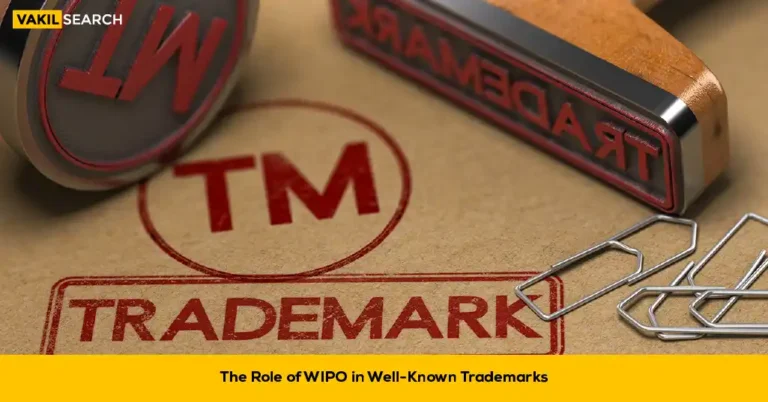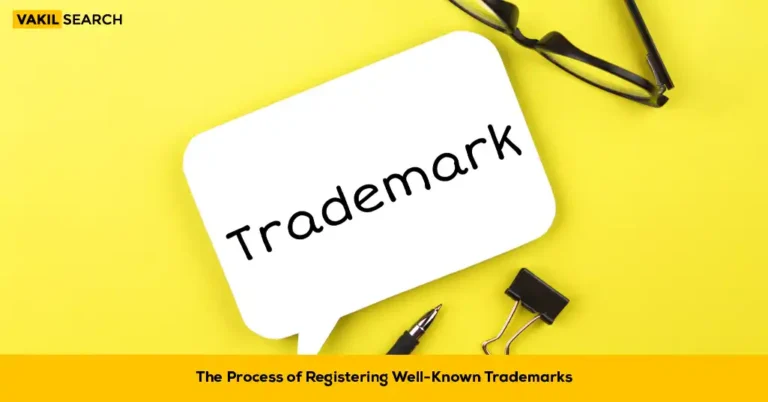Trademark restoration is the process of re-registering a trademark in the trademark register after the trademark renewal deadline has passed. In this article, we’ll dwell on the intr
Trademark Restoration: Overview
A trademark is especially important for a new product or company. Most entrepreneurs or businesses invest a significant amount of money and time prior to the launch of a new product or company in designing a trademark. This blog discusses about trademark restoration process in detail.
A trademark is a name, word, device, short phrase, or a symbol used in the trade of goods to distinguish it from others and to indicate the source of such goods. Trademark rights are typically used to prevent others from using a similar mark. But this does not preclude them from producing or selling the same goods under a different mark.
The most unpleasant thing that can happen during the launch of a new product or a new company is the discovery that their trademark is too similar, if not identical, to another product or company’s trademark. This could lead to a lot of confusion in the consumer’s mind.
Any unauthorised use of a company’s trademark by another company gives the proprietor the right to take legal action, making a company’s trademark one of its most valuable assets.
Validity of a Trademark
When a new company’s trademark is registered with the Registrar it is only good for ten years. As a result, in order to retain trademark rights after ten years, a company must renew them on a regular basis. Trademark renewal will aid in the preservation of the right and all of the protection that it entails.
The trademark renewal process should begin six months before the validity period expires. If the company does not apply for renewal, the Registrar sends a notice to the company 1-3 months before the expiration date.
A company that does not apply for renewal with the renewal fees within this period or until after the expiry of the trademark loses its trademark and suffers the consequences. If the period for renewing a trademark registration has expired, a company can apply for the trademark’s restoration. However, this restoration application must be submitted within six months to one year of the expiration date.
Requirements of Trademark Restoration
Trademark restoration is the process of reinstating a lapsed or removed trademark registration, involving specific requirements to regain legal protection for your brand.
- Form TM-12: This application is filled when the renewal process opted for is within the timeline. There is no surcharge fee involved.
- Form TM-10: This application is filled when the renewal process is done within six months before the expiration date. In this case, renewal fees and surcharges are applicable.
- Form TM-13: This application is to be filled when the trademark is removed from the register of trademarks. The renewal and the restoration process will take place six months to one year after the expiration date of the registration and both the renewal and the restoration fees are levied on the applicant.
FAQs on Trademark Restoration
Q. For how long will the renewal of a trademark registration be valid?
A trademark renewal extends the validity of rights and protection over the trademark for an additional ten years. To extend its validity even further, the company must renew it at least six months before its new expiration date.
Q. What happens if one fails to follow the renewal of the trademark?
The following situation could come into play if one fails to renew the trademark: a) The Registrar will remove the trademark from the register of the trademarks, making the trademark available to any use by any other company. b) It may affect the legal rights and exclusivity of the brand, making the owner vulnerable to infringement violation c) The company is no longer be protected against infringement claims
Q. How long do trademark rights last provided the renewal procedure is followed?
An active trademark is in effect indefinitely. The key point here is that the owner must continue to use it in order for the trademark to be valid. The ownership or property rights of trademarks are based on the continued and active use of the trademarks and are not essentially secured by a contract or any other agreement.
Q. What do trademarks protect?
A trademark represents a company's or a specific producer's or manufacturer's goodwill. Consumers are protected from being misled by trademarks. Trademark symbols provide powerful source-identification cues that allow us to make a value judgement about the quality of certain goods before we sample them. Trademarks ensure free competition by safeguarding the goodwill of the organisation that owns the mark. Unlike copyrights, which are concerned with the marketplace of expressive ideas, trademarks are concerned with the marketplace of goods and services.
Q. How are trademarks lost?
A trademark may be lost as a result of abandonment, dilution, or common use. If any other party can demonstrate that the owner intends to abandon a trademark, the trademark may be considered abandoned. If an individual or company wishing to challenge a mark can demonstrate that it has not been actively used. It is sufficient to cancel a trademark registration on grounds of abandonment. A trademark right may also be lost due to dilution. Dilution occurs when competitors use a similar trademark and the trademark holder does nothing to defend his or her mark. Another way for a trademark to be lost is through common use. This is when a trademark becomes associated with another specific good, and becomes the generic term for that specific good.
Q. Is there a danger of a trademark becoming generic?
Yes, there is always the risk of a trademark becoming generic. When a trademark loses its distinctiveness, it can become generic. Typically, this means that it is being used so frequently that it has lost the unique characteristics that made it worthy of being a trademark in the first place. When a trademark becomes generic, it has adverse legal implications and consequences.
Also, Read:










